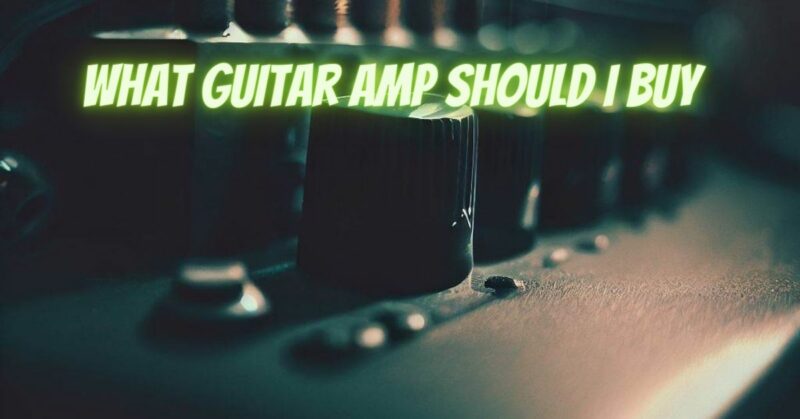Choosing the right guitar amp is a crucial decision for any guitarist, as it significantly impacts your sound, playing experience, and musical journey. With the wide variety of guitar amps available, finding the perfect fit can be overwhelming. In this article, we will explore the different types of guitar amps and factors to consider when making your purchase, helping you make an informed decision based on your needs, preferences, and playing style.
Types of Guitar Amps
- Solid-State Amps: Solid-state amps use semiconductor devices for amplification. They are known for their reliability, portability, and affordability. Solid-state amps are suitable for beginners, practice sessions, and musicians seeking a clean and reliable sound without the need for extensive maintenance.
- Tube (Valve) Amps: Tube amps utilize vacuum tubes for amplification, offering a warm, rich, and dynamic sound. They are favored by many guitarists for their unique tonal characteristics, natural compression, and harmonics. Tube amps are excellent for blues, rock, and vintage-style tones, but they tend to be heavier, more expensive, and require occasional tube replacements.
- Modeling Amps: Modeling amps use digital technology to simulate the sound of various amplifiers and effects. They offer versatility and a wide range of tones in a single unit, making them suitable for players who desire a diverse sound palette. Modeling amps are ideal for experimentation, recording, and practicing with various styles.
- Hybrid Amps: Hybrid amps combine tube and solid-state technologies, often using a tube preamp with a solid-state power amp. These amps aim to provide a balance between the warmth of tubes and the reliability of solid-state components.
Factors to Consider
- Playing Environment: Consider where you will primarily use the amp. If you need something portable for gigs, rehearsals, or live performances, a lightweight and durable amp is essential. For home practice, you might prioritize a smaller amp with a headphone output for silent practice.
- Wattage: The wattage of the amp determines its power output and volume level. Higher wattage amps are suitable for larger venues and bands, while lower wattage amps are more appropriate for home use or small gigs. Consider the right balance between power and portability.
- Genre and Playing Style: The type of music you play influences the amp’s suitability. Blues and rock guitarists often prefer tube amps for their warm and dynamic tones, while metal guitarists may lean towards high-gain solid-state or modeling amps for their aggressive sound.
- Budget: Set a budget that aligns with your needs and expectations. Determine how much you are willing to invest in an amp while considering factors such as quality, features, and long-term value.
- Test and Listen: Whenever possible, try out different amps in person to hear their sound, responsiveness, and tonal range. This hands-on approach will give you a better understanding of how an amp suits your playing style.
Selecting the right guitar amp is a personal and important decision for any guitarist. Consider the type of amp that aligns with your preferences and playing style, whether it’s a solid-state, tube, modeling, or hybrid amp. Evaluate factors such as wattage, portability, genre compatibility, and your budget. Test and listen to various amps to experience their sound and feel. By carefully considering these factors, you can find an amp that enhances your playing experience and allows you to express your musical creativity to the fullest.


